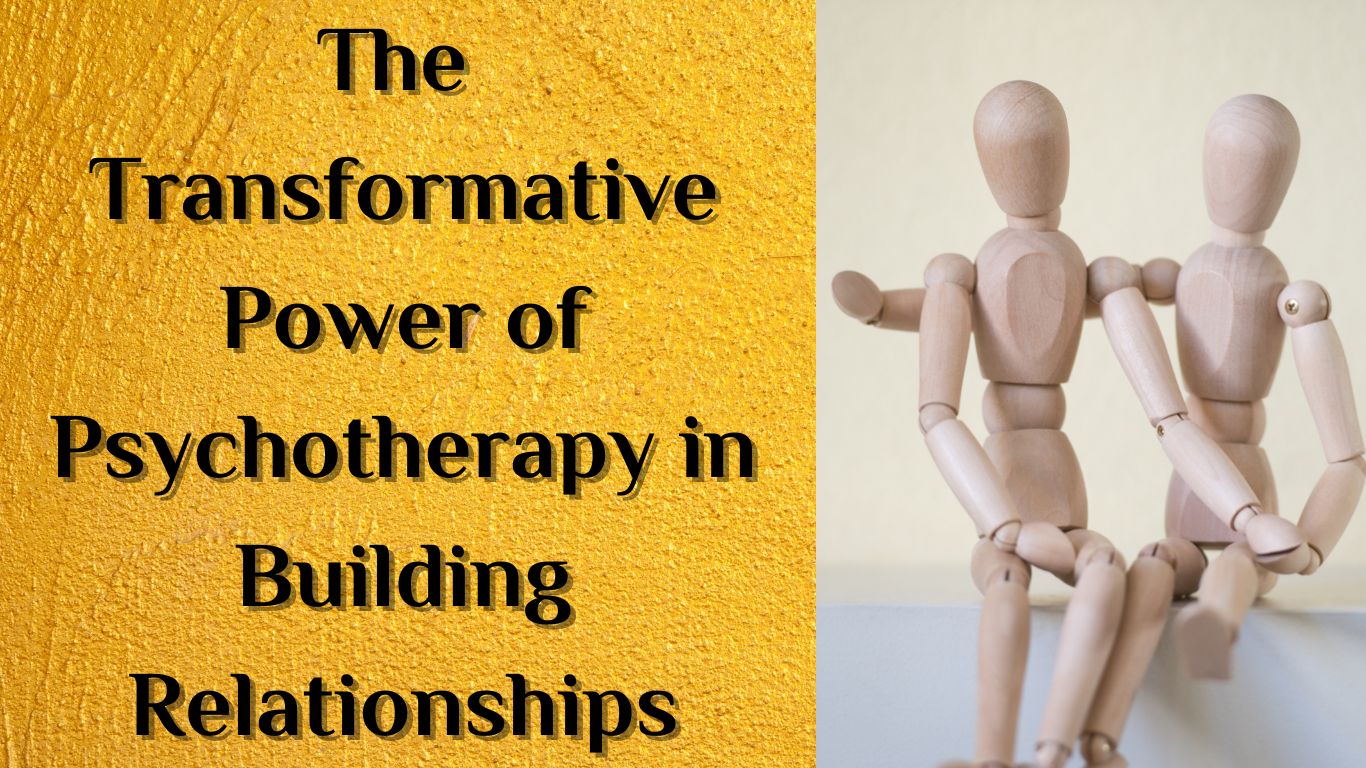The Transformative Power of Psychotherapy in Building Relationships

Introduction
The realm of psychotherapy stands as a beacon of hope and healing for individuals grappling with the complexities of human relationships. Through the art and science of psychotherapy, mental health professionals guide individuals toward a profound understanding of themselves and others, fostering healthier and more fulfilling relationships. This essay explores the remarkable impact of psychotherapy in building and nurturing connections, highlighting its therapeutic processes, empathetic foundations, and the ripple effects of emotional growth on personal and interpersonal levels.
Understanding the Self
At the heart of psychotherapy’s effectiveness lies its capacity to facilitate self-awareness and self-understanding. It offers individuals a safe and non-judgmental space to explore their thoughts, emotions, and past experiences. Through techniques like introspection, cognitive-behavioral therapy, and psychodynamic analysis, psychotherapy unveils the layers of one’s psyche, shedding light on unresolved conflicts, traumas, and deeply ingrained patterns of behavior. This newfound self-awareness serves as the cornerstone for healthier relationships.
Enhancing Emotional Intelligence
Psychotherapy equips individuals with the tools to develop emotional intelligence, a critical component in building and sustaining meaningful relationships. By helping clients identify, label, and regulate their emotions, therapists empower them to communicate their feelings effectively. As individuals gain a better understanding of their emotional responses, they become more attuned to the emotional needs of others, fostering empathy, compassion, and connection in their relationships.
Empathetic Listening
A hallmark of psychotherapy is the art of empathetic listening. Therapists cultivate empathetic skills, demonstrating the power of active and non-judgmental listening. This skill, when learned by clients, transcends the therapy room and infuses their interactions with loved ones. Through empathetic listening, individuals become better attuned to the needs, desires, and fears of their partners, family members, and friends, resulting in deeper, more authentic connections.
Resolving Interpersonal Conflicts
Psychotherapy offers a structured framework for resolving interpersonal conflicts. It teaches conflict resolution strategies, emphasizing assertive communication, active listening, and compromise. Clients learn to navigate disagreements without resorting to harmful behaviors or damaging their relationships irreparably. By providing a safe space for practicing these skills, psychotherapy empowers individuals to cultivate healthier dynamics within their relationships.
Breaking Destructive Patterns
Many individuals find themselves trapped in destructive relationship patterns, often mirroring unresolved issues from their past. Psychotherapy serves as a catalyst for breaking these patterns by addressing their root causes. Clients learn to recognize and challenge self-sabotaging behaviors and beliefs, opening the door to healthier relationship choices and fostering personal growth.
The Ripple Effect
The impact of psychotherapy on relationships extends beyond the individual seeking treatment. As individuals grow emotionally and psychologically, their transformed interactions with others ripple through their social circles. Healthy communication, empathy, and conflict resolution skills have the potential to create a domino effect, spreading harmony and understanding in families, workplaces, and communities.
Conclusion
In conclusion, psychotherapy stands as an invaluable tool for building and nurturing relationships. Through the processes of self-discovery, emotional intelligence development, empathetic listening, conflict resolution, and pattern disruption, psychotherapy empowers individuals to cultivate healthier, more meaningful connections with others. As clients embark on their journey toward self-improvement and emotional growth, the ripple effect of their transformation can lead to stronger, more harmonious relationships within the broader social fabric. Psychotherapy, with its unwavering commitment to healing and understanding, plays an essential role in fostering a more connected and empathetic world.
